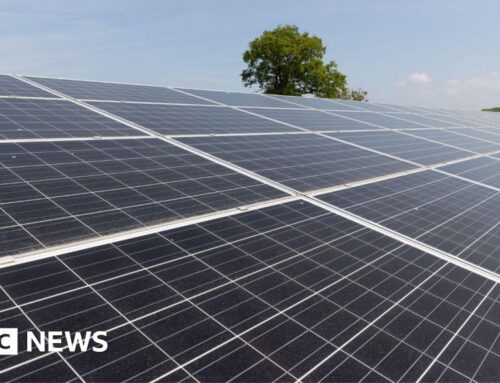From Anxiety to Recovery: Why Cannabis Is Becoming a Game-Changer for Everyday Wellness |
April 29, 2025

The concept of wellness is evolving, and cannabis is rapidly emerging as a key player in this transformation. No longer limited to recreational use or alternative therapies, cannabis is becoming an essential part of how many people address anxiety, promote healing, and sustain everyday well-being. As scientific research, public understanding, and product innovation converge, cannabis is redefining what it means to live a balanced, healthy life.
Understanding the Connection: Cannabis and Anxiety Relief
Anxiety disorders affect millions globally, impacting focus, relationships, sleep, and overall quality of life. Traditional treatments often include pharmaceuticals such as SSRIs and benzodiazepines, which can bring side effects or dependency risks. As a natural alternative, cannabis is gaining attention for its potential to soothe anxiety symptoms without the harsh side effects.
Cannabinoids like CBD (cannabidiol) interact with the body’s endocannabinoid system (ECS), helping regulate mood, stress response, and emotional stability. CBD has shown promise in reducing generalized anxiety, social anxiety, and even PTSD-related symptoms by influencing serotonin receptors. THC, when consumed mindfully at low doses, can also foster relaxation and emotional release, although higher doses may increase anxiety for some.
Products specifically designed for anxiety relief, such as CBD oils, vape pens, and microdosed edibles, are helping individuals find a natural, gentle path to emotional balance.
Cannabis and the Recovery Journey
Beyond anxiety relief, cannabis is making waves in broader recovery contexts, from physical rehabilitation to emotional healing. Recovery can be complex, involving multiple dimensions of health—physical, mental, and emotional. Cannabis offers versatile support across these areas by:
- Managing Chronic Pain: Cannabis can reduce pain perception by modulating the ECS and interacting with pain-signaling pathways.
- Reducing Inflammation: Chronic inflammation often underpins a range of health conditions. Cannabis, particularly CBD, shows anti-inflammatory effects that support recovery from injury or illness.
- Supporting Mental Health: Emotional resilience is critical to recovery, and cannabis can help stabilize mood, reduce intrusive thoughts, and promote a sense of peace.
- Enhancing Sleep Quality: Sleep is foundational to healing. Cannabis can shorten the time to fall asleep and improve sleep depth, crucial for physical and psychological restoration.
From athletes recovering from intense training to individuals healing from surgery or emotional trauma, cannabis is offering a new tool for promoting holistic recovery.
Forms of Cannabis for Wellness and Recovery
The cannabis industry today offers more refined and wellness-focused options than ever before, allowing individuals to tailor their experience to their specific needs.
- CBD Oils and Tinctures: Highly versatile and easy to dose, perfect for anxiety and general wellness support.
- Topical Creams and Patches: Target localized pain and inflammation without psychoactive effects.
- Edibles: Offer long-lasting relief, ideal for managing chronic conditions or maintaining steady emotional balance.
- Vape Pens: Provide fast-acting effects, helpful for acute anxiety or breakthrough symptoms.
- Capsules: Deliver consistent, measured doses suitable for daily wellness routines.
Customizing cannabinoid profiles, adjusting THC-to-CBD ratios, and exploring different consumption methods allow users to find the most effective strategies for their wellness journey.
Personalizing the Wellness Journey
No two individuals are the same, and cannabis offers the flexibility needed to create personalized wellness regimens. Some may find success microdosing THC during the day while using CBD at night. Others may prefer full-spectrum extracts that harness the synergistic “entourage effect,” enhancing therapeutic benefits through the combination of cannabinoids and terpenes.
Starting with a “low and slow” approach—low dosages and slow increases—allows consumers to find their sweet spot without overwhelming effects. Working with knowledgeable healthcare providers can also provide guidance, ensuring that cannabis complements other aspects of a holistic recovery plan.
Destigmatizing Cannabis as a Wellness Tool
Despite growing acceptance, outdated stereotypes still hinder broader adoption of cannabis for wellness. Continued education, transparent labeling, third-party testing, and advocacy from respected voices in the medical and wellness communities are critical for normalizing cannabis as a legitimate health tool.
Leading wellness brands are setting new standards by emphasizing quality sourcing, ethical practices, and community education, helping cannabis shed outdated stigmas and be recognized for its true potential.
Cannabis in Holistic Wellness Practices
Cannabis complements a range of holistic practices, enriching their effects and deepening the benefits of a wellness-focused lifestyle:
- Yoga and Stretching: Cannabis can enhance body awareness, making stretching routines more effective and relaxing.
- Meditation and Mindfulness: Cannabis can quiet mental chatter and deepen states of relaxation, aiding meditation practices.
- Nutrition: Anti-inflammatory cannabis products align with clean, whole-food-based wellness diets.
- Energy Work and Massage: Cannabis topicals can support muscle release and energetic balance.
Incorporating cannabis into these practices can create a layered, multi-faceted approach to healing and well-being.
Future Outlook: Cannabis and the Next Era of Wellness
As legalization expands and research continues, the future holds even more promise for cannabis in wellness. Trends likely to shape the landscape include:
- Greater emphasis on minor cannabinoids like CBG and THCV.
- Increased availability of “precision medicine” cannabis therapies.
- Integration of cannabis with other plant-based healing traditions.
- Growth of cannabis-centered wellness retreats, workshops, and experiential learning programs.
- Deeper clinical research into cannabis for mental health, immune function, and neuroprotection.
Cannabis is no longer just a trend; it is becoming an enduring pillar in the foundation of modern wellness.
Conclusion
From easing daily anxiety to accelerating recovery, cannabis is fundamentally changing how people approach wellness. Through mindful consumption, product innovation, and greater public education, cannabis is transitioning from misunderstood stigma to celebrated solution.
Those seeking to enhance their wellness journey should consider cannabis as a versatile, natural, and profoundly impactful tool. As always, prioritizing high-quality products, personalized strategies, and professional guidance will ensure the best outcomes.
By integrating cannabis into a thoughtful and holistic approach to life, individuals can unlock new levels of resilience, peace, and vitality.
Search
RECENT PRESS RELEASES
Related Post










